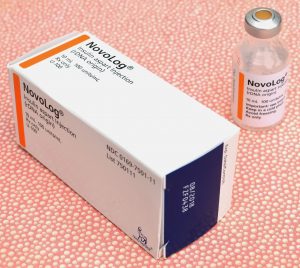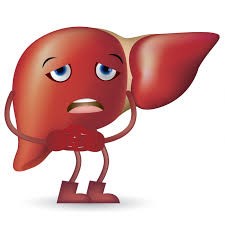Alcohol’s effects on chronic disease — Good or Bad?
Betty Chaffee/ April 16, 2019/ Self management/ 2 comments
The last article in our three-part series observing National Alcohol Awareness month, like the second, will focus on the majority of folks out there who, when they drink alcohol, drink in moderation. An accepted definition of "moderate drinking" is less than two standard drinks per day for women or less than three for men.
There's been a fair amount of research on the effects of alcohol on chronic disease, including the question of whether alcohol can play a role in disease prevention or whether, instead, it increases the risk of chronic disease. Lots of the research is inconclusive, or wasn't done in such a way that experts feel they can hang their hats on the results. In the first article of this series, we talked about how heavy drinking can increase the chances of a variety of chronic health problems: liver disease, high blood pressure, depression, and others. The second article pointed out the many ways that alcohol can affect the medicines people commonly take to treat chronic diseases. In this final installment of the series we'll talk about some of the things that are generally accepted regarding alcohol and its effect on chronic diseases.
Is alcohol ever beneficial in preventing disease?
The short answer is, yes, according to some research. (But read all the way to the end of the section to get the full answer!) Research has shown that moderate alcohol intake may, indeed, lower the risk of high blood pressure, heart failure, coronary heart disease, peripheral artery disease, atrial fibrillation, stroke, and diabetes. For some of these diseases, the cutoff point for beneficial effects was less than one drink daily, though, which is lower than the usually accepted definition of "moderate drinking". There are many proposed mechanisms for these benefits, but there are also experts who aren't sure whether the benefits are from alcohol itself or from something else that makes moderate drinkers different from those who don't drink at all or who drink heavily. In some ways the jury is still out. But one thing IS clear -- in some individuals, the risk of moderate drinking becoming alcohol overuse outweighs the possible benefits on disease prevention. Current thinking is that for those who already drink in moderation, there may be a benefit in terms of prevention of disease. But for those who do not drink, or those who have a history of heavy alcohol use, the risks of problems from alcohol overuse likely outweigh the possible benefits.
When might moderate alcohol intake be a problem?
Diabetes
 Even moderate drinking can interfere with the body's ability to regulate blood sugar. Some research has shown that drinking alcohol with an evening meal can increase the chance for delayed hypoglycemia (low blood sugar). This can be a real risk for those with diabetes, especially those who take insulin or other medicine intended to lower blood sugar.
Even moderate drinking can interfere with the body's ability to regulate blood sugar. Some research has shown that drinking alcohol with an evening meal can increase the chance for delayed hypoglycemia (low blood sugar). This can be a real risk for those with diabetes, especially those who take insulin or other medicine intended to lower blood sugar.
Image by jwskks5786 from Pixabay
Conversely, alcohol can complicate diabetes control for those at risk for hyperglycemia (high blood sugar). Some alcoholic drinks contain large amounts of carbohydrates (beers, wine coolers, mixed drinks with sodas or juice), which can increase blood glucose levels. Because alcohol has little or no nutritional value, these "empty calories" can make it more challenging for patients with diabetes to achieve steady control of their blood glucose and potential weight loss.
Another risk for people with diabetes is that alcohol may worsen the symptoms and progression of diabetic peripheral neuropathy, a condition that causes numbness, tingling, and/or pain in the feet and legs. Alcohol by itself is known to be a cause of peripheral neuropathy, and it's thought that alcohol and diabetes enhance each others' effects on the nerves. The likelihood of neuropathy increases as the degree of alcohol intake increases.
Active stomach ulcers or gastritis
Image from well-beingsecrets.com
 Gastritis is a condition where the inner protective lining of the stomach is inflamed due to irritation, which can be caused by various means including certain bacteria, medications, and certain foods. Gastritis could be worsened with alcohol consumption, leading to stomach bleeding or the formation of an ulcer (a sore on the stomach or intestinal lining). Fortunately, gastritis and ulcers can generally be treated with medications. However, avoidance of alcohol is strongly encouraged when a person has active gastritis or an unhealed ulcer, as alcohol can cause additional irritation, which could prolong healing.
Gastritis is a condition where the inner protective lining of the stomach is inflamed due to irritation, which can be caused by various means including certain bacteria, medications, and certain foods. Gastritis could be worsened with alcohol consumption, leading to stomach bleeding or the formation of an ulcer (a sore on the stomach or intestinal lining). Fortunately, gastritis and ulcers can generally be treated with medications. However, avoidance of alcohol is strongly encouraged when a person has active gastritis or an unhealed ulcer, as alcohol can cause additional irritation, which could prolong healing.
Liver and kidney disorders
Image from hepmag.com
 Both the kidneys and the liver have many functions in the body. Both filter toxins (including alcohol) from the blood; the liver helps regulate blood sugar and cholesterol levels, and kidneys regulate fluids and electrolytes. When one of these organs is compromised through injury or illness such as fatty liver, hepatitis, cirrhosis, or chronic kidney disease, chronic alcohol consumption (even in moderation) can result in further problems -- liver or kidney cancer, high blood pressure, heart disease, or permanent liver or kidney failure. Kidney and liver funct
Both the kidneys and the liver have many functions in the body. Both filter toxins (including alcohol) from the blood; the liver helps regulate blood sugar and cholesterol levels, and kidneys regulate fluids and electrolytes. When one of these organs is compromised through injury or illness such as fatty liver, hepatitis, cirrhosis, or chronic kidney disease, chronic alcohol consumption (even in moderation) can result in further problems -- liver or kidney cancer, high blood pressure, heart disease, or permanent liver or kidney failure. Kidney and liver funct ion can both be assessed using simple blood tests; this is often done every so often at routine physical examinations. If minor problems are found, they will often improve with temporary abstinence from alcohol; more severe conditions may require long-term abstinence.
ion can both be assessed using simple blood tests; this is often done every so often at routine physical examinations. If minor problems are found, they will often improve with temporary abstinence from alcohol; more severe conditions may require long-term abstinence.
Image from knowpathology.com au
So, is drinking in moderation good or bad?
Moderate intake of alcohol appears to have some benefits in terms of maintaining heart health. For those who have diabetes, stomach problems, or liver or kidney disorders, though, even moderate alcohol intake may cause problems. Just as important, moderate alcohol intake, for those at risk, may become risky alcohol intake over time. Awareness of the risks and benefits of alcohol use and open communication with healthcare providers is the best way to use alcohol wisely.
 Alan Tanabe, PharmD. has been a registered pharmacist in the state of Michigan since 1991. In addition to working as a pharmacist in a community setting, he has helped patients achieve better health outcomes with Medication Therapy Management.
Alan Tanabe, PharmD. has been a registered pharmacist in the state of Michigan since 1991. In addition to working as a pharmacist in a community setting, he has helped patients achieve better health outcomes with Medication Therapy Management.
![]()


Thanks. One thought I didn’t see is the mental affect of alcohol. Alcohol use affects judgment, balance, and coordination. -r
Dear Ruth,
Thanks for that observation.. Typically when we think of drinking in moderation, we think of a drink or two with dinner (or something along those lines). That sort of intake often doesn’t affect coordination or behavior. But you’re right, some are more sensitive to the affects of alcohol than others, and those individuals as well as those who engage in heavier drinking could definitely have the kinds of problems you describe, increasing the risk of falls and injury, making poor decisions in important situations, and other consequences as well.